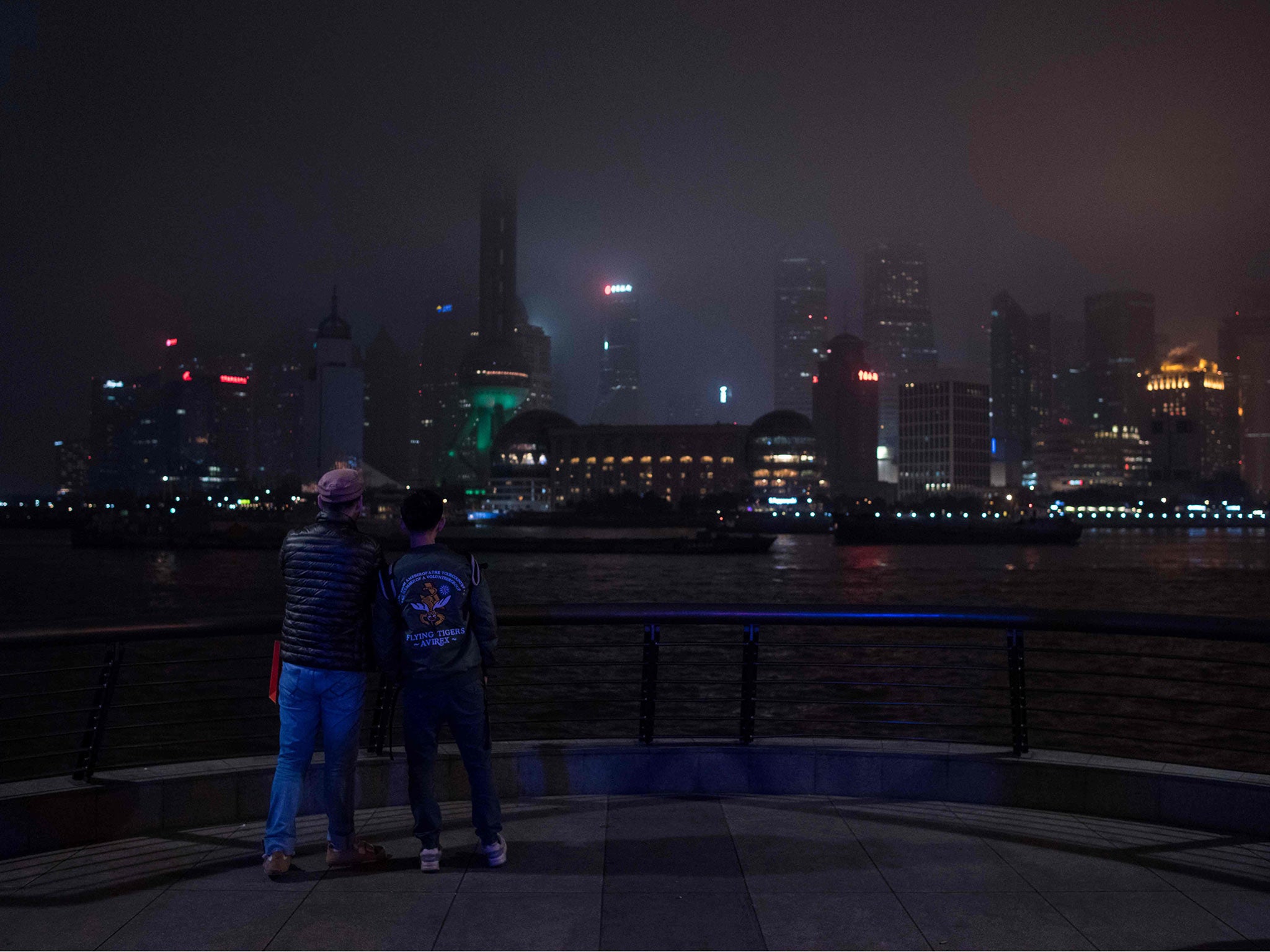Severe weather causing delays to half of commuters at least once a month, Earth Hour poll finds
Survey finds more than half of people don’t think their lives are affected by climate change, but increased rainfall and flooding in the UK have been linked to the rise in global temperatures

Your support helps us to tell the story
From reproductive rights to climate change to Big Tech, The Independent is on the ground when the story is developing. Whether it's investigating the financials of Elon Musk's pro-Trump PAC or producing our latest documentary, 'The A Word', which shines a light on the American women fighting for reproductive rights, we know how important it is to parse out the facts from the messaging.
At such a critical moment in US history, we need reporters on the ground. Your donation allows us to keep sending journalists to speak to both sides of the story.
The Independent is trusted by Americans across the entire political spectrum. And unlike many other quality news outlets, we choose not to lock Americans out of our reporting and analysis with paywalls. We believe quality journalism should be available to everyone, paid for by those who can afford it.
Your support makes all the difference.About half of commuters suffer delays to their journey once a month because of severe weather, according to a new poll commissioned as part of Earth Hour.
The WWF event takes place at 8.30pm on Saturday, when people and businesses are urged to switch off their lights as a symbolic gesture about the need to reduce greenhouse gas emissions by saving energy.
The environmental campaign group surveyed nearly 3,000 people to find out their attitudes to global warming, renewable forms of transport and the effect of bad weather on their commute.
They found that nearly 86.8 per cent of people cared about climate change – either a lot (43.8 per cent) or somewhat (43 per cent). Just 13.2 per cent said they “don’t really care”.
While 51.9 per cent of respondents to the survey said climate change did not impact on their day-to-day life, they also reported that their journeys to work were regularly disrupted by bad weather.
More than 47 per cent told pollsters Opinion Matters that they were delayed at least one day a month on average.
About 13 per cent suffered delays on three to five days a month, which if extrapolated up to the total number of commuters would affect about 1.4 million people.
Climate change has already been linked with increased rainfall and flooding in the UK and is generally expected to see greater extremes of weather as the amount of energy in the atmosphere increases.
Gareth Redmond-King, WWF’s head of energy and climate policy, said: “People often think of climate change as melting ice caps and distant droughts – problems far away, with effects a long time into the future.
“But in fact, its impacts are already happening much closer to home.”
The poll also found significant public support for suggestions that the Government should invest in green transport technology (46.8 per cent), provide financial incentives for it (41 per cent), and making roads safer for cyclists (31.6 per cent).
Just 15.2 per cent thought these kinds of measures were “not the responsibility of the Government”.
Asked if they would consider buying or hiring an electric car, 43.5 per cent said they were too expensive, 10.5 per cent said they were not powerful enough and 4.1 per cent said they were embarrassing to own.
However, 25.1 said they would consider buying one because they were cheaper to run and 14.3 per cent said they would so they could reduce their impact on the environment. Electric cars were already owned by 2.6 per cent of the survey’s respondents.
Mr Redmond-King said: “Transport is a big cause of greenhouse gas emissions in the UK; yet some of the most environmentally friendly ways to travel – public transport – are already suffering from the impacts of climate change.
“It is a catch-22 as more extreme weather is putting transport infrastructure under ever-greater pressure and making train travel less reliable and less appealing, just when we need people to get out of their cars.
“It’s great that there’s the appetite for reducing our environmental impact when we commute, but government and transport providers need to work together to build resilience to offer people better alternatives to the most polluting forms of travel.”
WWF described Earth Hour as “the world’s largest climate change demonstration”.
“In the UK last year, over six million people took part, nearly 200 landmarks, along with thousands of schools, businesses and organisations,” it said.
“Iconic landmarks including Big Ben and Palace of Westminster, Buckingham Palace, Tower Bridge, Blackpool Tower, The Kelpies, Caerphilly Castle and many more joined the global lights out.
“Globally, from Samoa to Tahiti, a record 178 countries and territories took part in the world’s biggest Earth Hour yet.
“The Sydney Harbour Bridge and Opera House, the world’s tallest building Burj Khalifa in Dubai, South Africa’s Table Mountain, The Acropolis in Athens, The Eiffel Tower in Paris, The Empire State Building and Times Square in New York City, and the Las Vegas Strip were just a few of the world-famous landmarks that joined in.”
Join our commenting forum
Join thought-provoking conversations, follow other Independent readers and see their replies
Comments